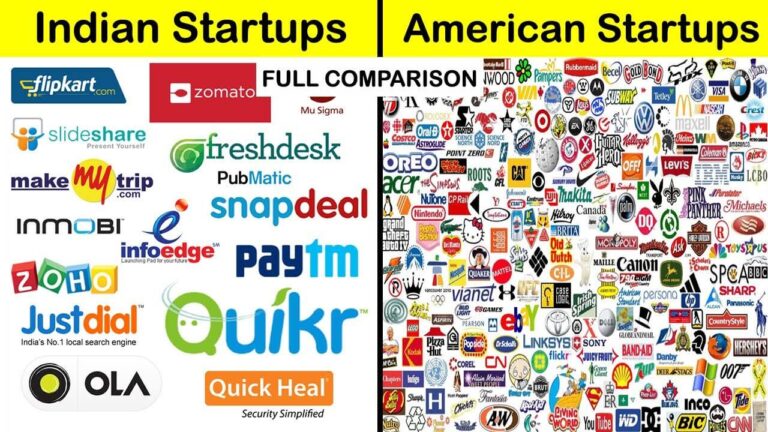7 Ways Leveraging Technology Can Boost Business Efficiency
In the digital age, technology serves as the bedrock upon which businesses build their strategies for growth and efficiency. The right technological tools can automate mundane tasks, enhance communication, and streamline operations, ultimately leading to increased productivity and profitability. As businesses strive to stay ahead in an increasingly competitive landscape, leveraging technology becomes not just an advantage but a necessity. From marketing to project management and data storage, the application of technology in business processes can transform the way companies operate, driving them towards unprecedented levels of efficiency.
- Implementing Project Management Software
Project management software stands as a testament to how technology can bring method to the madness of coordinating complex tasks and projects. These sophisticated platforms enable businesses to plan, execute, and monitor projects all in one place. By providing an overview of tasks, deadlines, and responsibilities, project management tools help keep teams aligned and focused.
The integration of such software into daily operations can dramatically enhance efficiency. Automated reminders keep projects on track, while collaborative features facilitate seamless communication among team members, regardless of their physical location. Centralized document storage means no more time wasted searching for files, and real-time updates ensure everyone is always informed of the latest developments. This comprehensive approach to managing projects not only streamlines workflow but also maximizes the productivity of each team member, driving the overall efficiency of the business.
- Utilizing Visual Content
In the realm of digital marketing and content creation, visual appeal is paramount. Here, technology offers a treasure trove of resources in the form of stock vectors and illustrations. These assets provide businesses with an efficient way to add high-quality, professional visuals to their marketing materials without the time and expense of creating them from scratch. With access to a vast selection of ready-made graphics, businesses can enhance their visual content, which is essential for capturing the attention of a visually-driven audience.
Stock vectors and illustrations are not only cost-effective but also highly versatile and easily modified to fit various formats and styles. They can be used across websites, social media, presentations, and print materials, providing a consistent and polished look that reinforces brand identity. This uniformity and professionalism in visual communication can significantly impact customer engagement and perception, contributing to a stronger brand presence and more efficient marketing efforts.
- Utilizing Cloud Computing Services
Cloud computing has revolutionized the way businesses manage and access their data. By utilizing cloud services, companies can store large amounts of data securely online, making it accessible from anywhere at any time. This flexibility is invaluable for businesses with remote teams or those that require frequent travel, as it allows employees to remain productive regardless of their location.
Cloud computing also offers scalability, meaning businesses can adjust their storage needs as they grow, ensuring they only pay for what they use. Moreover, cloud services often include robust security measures and data backup solutions, which are crucial for protecting against data loss and cyber threats. The adoption of cloud computing not only enhances operational agility but also provides peace of mind that business data is secure and always within reach.
- Adopting Customer Relationship Management (CRM) Systems
In today’s customer-centric market, managing relationships effectively is critical. CRM systems harness technology to centralize customer information, streamline sales processes, and enhance marketing strategies. By keeping a detailed record of customer interactions, businesses can provide a personalized experience, which is key to customer satisfaction and retention.
CRM systems enable the tracking of customer preferences, purchase history, and feedback, all of which are essential for tailoring marketing campaigns and sales pitches to individual needs. This personal touch not only strengthens the relationship but also encourages loyalty, as customers feel understood and valued. Furthermore, CRM analytics can reveal patterns and trends that inform future business strategies, making these systems an indispensable tool for any business looking to enhance its customer relations and, in turn, its efficiency.
- Integrating E-commerce Platforms
E-commerce platforms are the engines of online sales. They provide businesses with the means to reach broader markets and facilitate transactions 24/7. By integrating e-commerce into their business model, companies can offer customers the convenience of shopping from anywhere at any time, which is a significant competitive advantage.
An effective e-commerce platform is seamless for the user, providing a straightforward and secure purchasing process. For the business, it offers an efficient, automated sales solution that reduces the need for brick-and-mortar overheads and manual sales processing. Inventory management features within these platforms can also help businesses keep track of stock levels, ensuring they can meet customer demand without overstocking, further enhancing operational efficiency.
- Leveraging Data Analytics Tools
Data is one of the most valuable resources in the modern business environment. Data analytics tools convert raw data into actionable insights, enabling businesses to make informed decisions. With these tools, companies can analyze customer behavior, market trends, and operational performance, pinpointing areas for improvement and new opportunities for growth.
By understanding the patterns hidden within the data, businesses can optimize their operations, tailor their marketing efforts, and anticipate market changes. This proactive approach to business management can significantly reduce waste and ensure resources are directed where they will be most effective. In a world where data-driven decisions are the norm, analytics tools are not just a luxury but a necessity for businesses looking to boost their efficiency and remain competitive.
- Automating Financial Operations
Financial tasks such as invoicing, payroll processing, and bookkeeping are essential yet time-consuming. Automating these financial operations can save businesses countless hours and reduce the potential for human error. Automation software can handle recurring tasks with precision and consistency, freeing up human resources for more strategic financial planning and analysis.
Automation also provides real-time financial data, allowing businesses to monitor their financial health closely and respond quickly to any issues. With automated systems, businesses can ensure timely payments, accurate financial records, and compliance with regulatory requirements. In the long run, financial automation not only streamlines processes but also contributes to a more strategic and informed approach to business finance.
Table of Contents
Conclusion
Technology is an invaluable ally for businesses seeking to enhance efficiency across various facets of operations. From fostering strong customer relationships with CRM systems to expanding reach through e-commerce and extracting insights with data analytics tools, technology empowers businesses to operate smarter. Automating financial operations further refines efficiency, allowing businesses to concentrate on growth and innovation. By embracing these technological tools, companies can position themselves to thrive in the fast-paced business landscape, turning challenges into opportunities for success.


